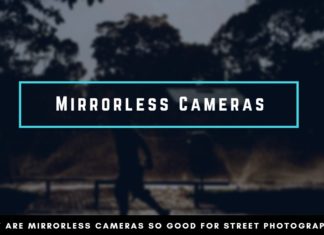If you are considering relocating to Singapore, the type of accommodation you wish to live in should top your list of priorities as a first-time buyer in the country. Whichever you choose is largely dependent on your individual financial and social circumstances. But with so many options to choose from, it can sometimes seem like an insurmountable task. Continue reading to familiarise yourself with a comprehensive guide to property types in Singapore.
A landed property
In the simplest of terms, a landed property, or landed estate, is a property that is directly attached to the land it is built on and the land you have purchased. It is a common choice for a growing number of homeowners in Singapore and is often associated with affluence and wealth. It is worth noting, however, that they do require a great deal of maintenance and upkeep on a regular basis due to their sheer size. A landed property also benefits from spacious living quarters and unrivalled privacy and security. Whether you are a young professional, recently married couple, or growing family, a landed property can be a great option for you. If you are struggling to decide, you should weigh up and pros and cons of a bungalow, semi-detached house, terraced house, shophouse, Good Class bungalow, cluster, and townhouse before making a final decision.
Public housing
When it comes to choosing a property type in Singapore, public housing, or a HDB property, is the most common choice. If you are unfamiliar with the real estate market in Singapore, you may be unfamiliar with the prospect of public housing or a HDB property. A number of years ago, a particular geographical portion of Singapore experienced rapid economic growth that eventually led to an increased appreciation of its real estate market. But with mansions, skyscrapers, and luxury flats cropping up left, right, and centre, the country’s government intervened and made the unanimous decision to build luxury public housing for less. With the idea continuing to gain momentum in the years that followed, the rest was history. With the sales of balance flat 2021 flourishing over 60 years after the construction of the first HDB flat, it is estimated that over 80% of the country’s population live in public housing today. To jump onboard the public housing train, you must choose between a studio apartment, two, three, four, or five-bedroom flat, three generation flat, executive flat, or DBSS flat.
Private housing
With Singapore experiencing strong economic growth, an influx of foreign interest, and a limited supply of free land, private housing appreciation has grown enormously. As a result, the Garden City has become an international hotspot for real estate investment on a global scale. This eventually contributes to property appreciation in the long run. In the simplest of terms, the cost of private housing has undergone a stratospheric rise in recent years and is only set to continue on an upwards trajectory as the country expands its existing offerings and plays host to a number of dynamic and diverse property types for both locals and foreigners alike. If you are interested in private housing, it may benefit you to consider a condominium, apartment or walk-up. With private housing, homeowners can benefit from a number of advantages not available to public housing residents. This includes greater flexibility, accessibility and security. They also differ from the constraints of a HDB property in that, as a homeowner, you are provided with the freedom to own your pet if and when you desire. A growing number of HDB properties either ban pets outright or limit them to a certain size.
Public – private hybrids
If you are torn between public housing and private housing, a public – private hybrid may be the right choice for you. An executive condominium, for example, is a property type that begins its life as a public housing unit but is converted into private housing in a series of phases following five years of ownership. They tend to be tailored towards young professionals and first-time parents whose financial situation falls between the cost of a HDB flat and a private property. They also benefit from similar design elements and facilities to that of a private condominium but with a relatively smaller price tag. Whilst comparing the differences between an executive condominium and a private condominium, it may benefit you to know that an executive condominium comes with a number of ownership restrictions and may render you eligible for government assistance and subsidises.
If you are in the process of moving to Singapore, you must research the wide range of property types available to suit your individual lifestyle and budget beforehand. From landed properties and public housing to private housing and public – private hybrids, you are guaranteed to find something to suit you in Singapore.





















